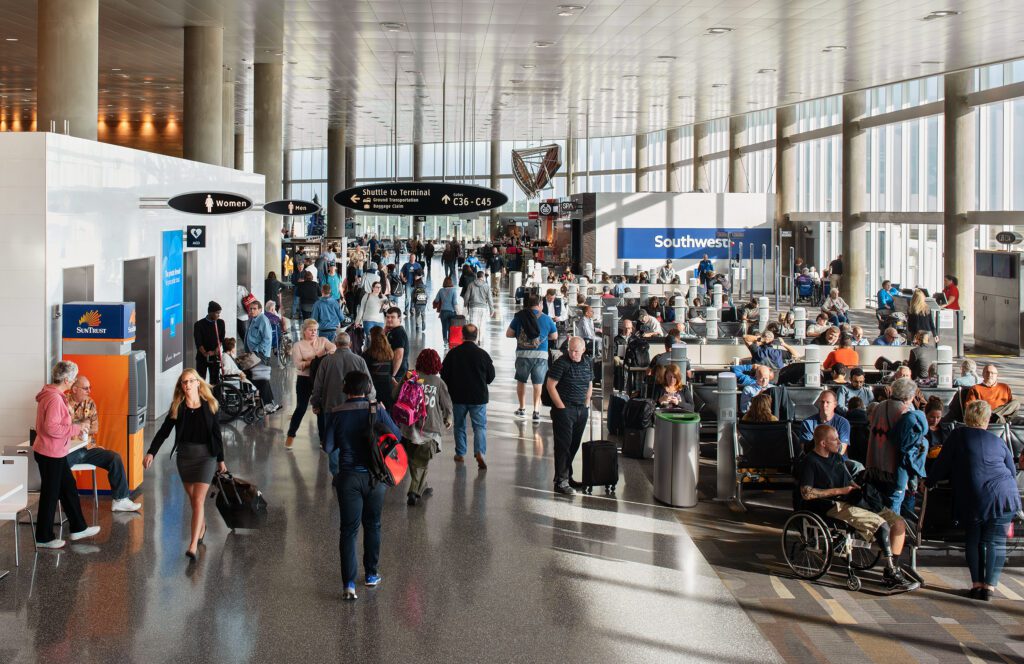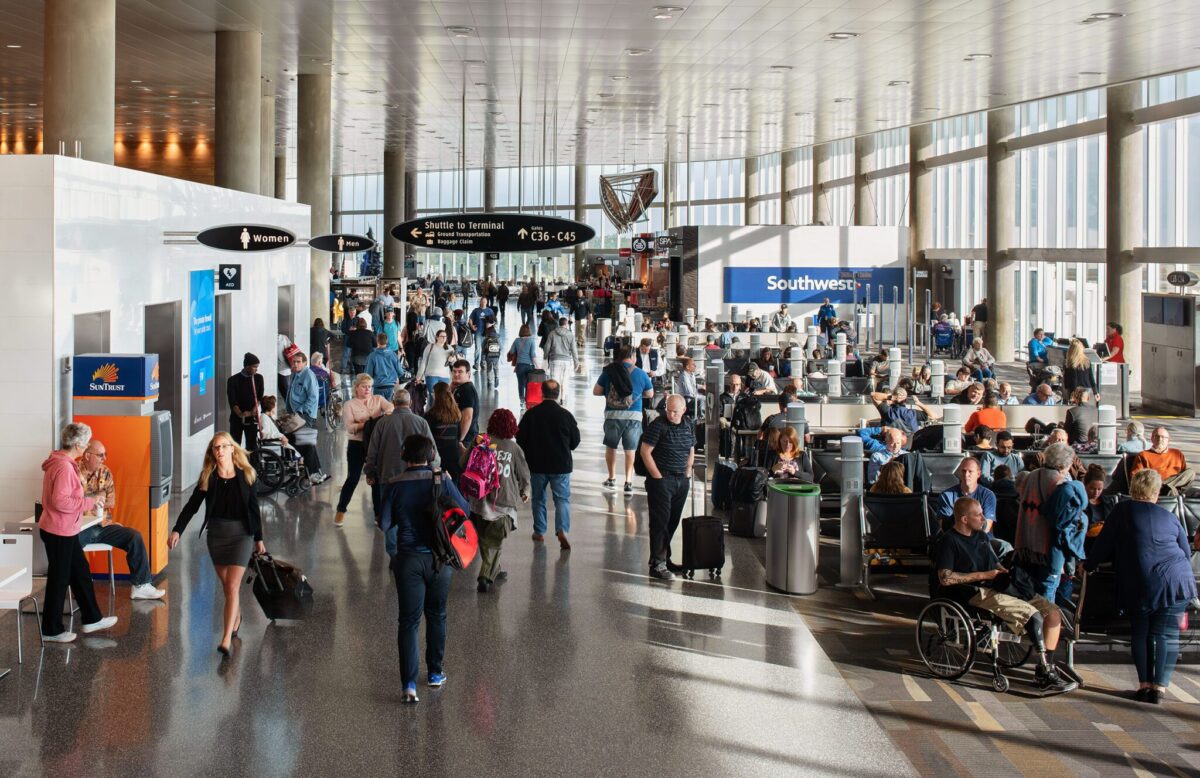
The Department of Transportation announced Thursday that it is proposing a new set of rules to compensate passengers for significant flight delays or cancellations.
The DOT said that passengers face hurdles during such events because airlines currently have no legal obligation to notify passengers when they are entitled to services like accommodations, rebooked flights and refunds that are outlined in their customer service plan.
The department described airline policies as “generally vague,” adding that passengers have to request such services in-person at the airport, and staff may not know if the airline caused the disruption. Another issue for travelers is that frontline staff at the airport may not have enough vouchers for meals or accommodations.
“This action we’re announcing is another step forward into a better era for commercial air travel — where the flying public is better protected and passengers aren’t expected to bear the cost of disruptions caused by airlines,” said Transportation Secretary Pete Buttigieg in a statement.
These rules would be in addition to the automatic refunds rule that went into effect in October.
It is unclear whether these rules could go into effect once President-elect Donald Trump takes office in January. Executives in the industry have expressed some enthusiasm that the incoming Trump administration will be less aggressive on regulations.
Considerations on Compensation, Rebookings and Accommodations
The DOT said it is considering mandating a series of requirements for airlines whenever there is a lengthy cancellation or delay that is caused by any circumstance that is within the airline’s control.
One rule would require airlines to pay at least $200 in compensation for a trip disruption caused by the carrier. The DOT said it is considering a tiered approach where compensation would range from $200 to $300 for domestic delays of at least three hours but no more than six; $375 to $525 for delays ranging from six to nine hours; and $750 to $775 for delays longer than nine hours.
The DOT said it was also considering whether smaller airlines should pay less than larger ones and whether passengers should be entitled to compensation when an airline notifies them at least two weeks before a disruption.
Another potential requirement for airlines would be to rebook passengers for free when their flight is canceled or delayed by at least three hours domestically, six hours or more internationally.
The DOT said it could either order airlines to rebook customers on the next available flight operated by the airline or its branded codeshare partners. If none of those options are available within 24 hours, the DOT said then passengers could be rebooked on a carrier that an airline has a commercial agreement with to transport that airline’s passengers.
The DOT also said it may mandate that carriers provide meals, overnight lodging and transportation to and from the airport during major disruptions. Additionally, the rule could also establish standards for what must be covered, including how often such services should be provided.
Airlines may also be required to pay a minimum reimbursement to passengers for meals, lodging and transportation if they do not offer these services upfront. Passengers would also not need to submit receipts for costs that are under the maximum reimbursement limit.
The DOT is also seeking public comment as to when to consider whether a cancellation or delay is an airline’s fault.
Airlines for America, the trade group that represents most major U.S. airlines, criticized the rules, arguing that they could drive up airfares.
“This proposal is simply one in a long string of ill-conceived and rushed rules from an administration intent on reregulating the U.S. airline industry,” A4A said in a statement.
DOT Cracks Down on Airlines’ Responses to Meltdowns
These proposed rules come as the DOT has taken a more aggressive approach to airline meltdowns.
When Delta Air Lines faced a week-long meltdown following the CrowdStrike outage, the DOT launched an investigation into the carrier’s response. Multiple travelers told Skift at the time that Delta didn’t offer them refunds or reimbursements for accommodations, transportation and meals. Others reported waiting for hours to get on the phone with a customer service agent.
Delta received backlash for its response to the meltdown and subsequently sued CrowdStrike over the IT outage.
When Southwest Airlines faced its largest operational meltdown in its history in 2022 following a winter storm, customers complained about receiving poor communication from the carrier on refunds and lost luggage.
The DOT fined Southwest $140 million for the meltdown, the largest fine given to an airline for such a disruption. The department has not announced any fines for Delta yet.
Airlines Sector Stock Index Performance Year-to-Date
What am I looking at? The performance of airline sector stocks within the ST200. The index includes companies publicly traded across global markets including network carriers, low-cost carriers, and other related companies.
The Skift Travel 200 (ST200) combines the financial performance of nearly 200 travel companies worth more than a trillion dollars into a single number. See more airlines sector financial performance.
Read the full methodology behind the Skift Travel 200.

